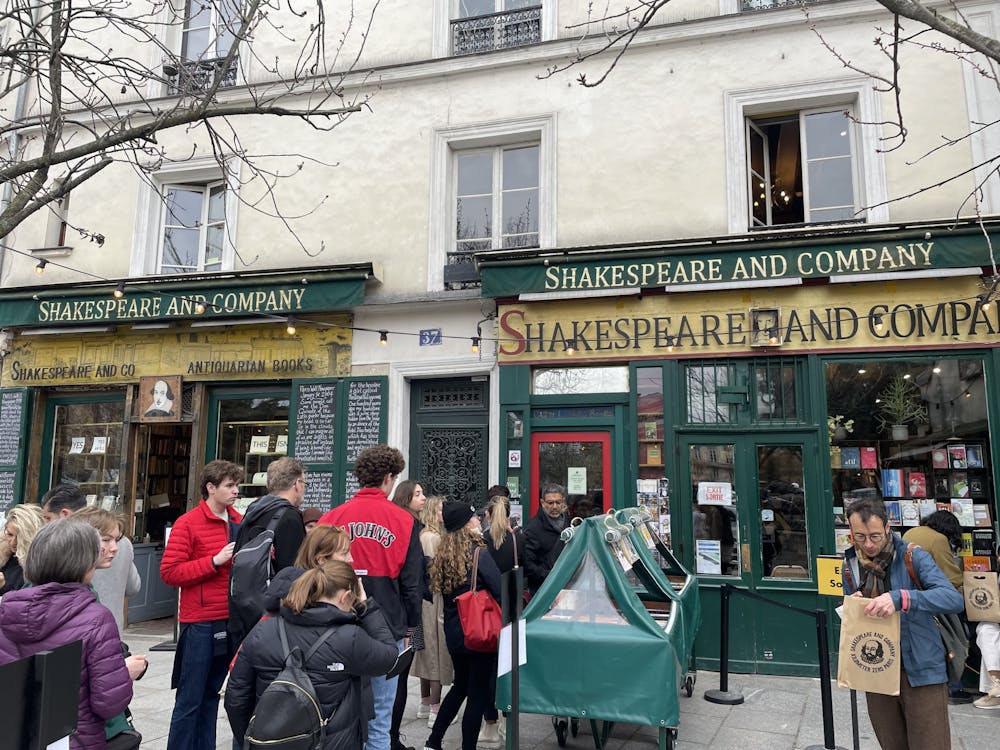“To be honest, I didn’t even know I received the Goldwater Scholarship,” Mickey Sloat said in an interview with The News-Letter. “My friend, who was a previous winner, texted me about it, and when I went online and looked I was totally shocked.”
Sloat, a junior majoring in Molecular and Cellular Biology, joins juniors Annie Liang and Turner Woody in being named this year’s Goldwater Scholarship winners.
The Barry Goldwater Scholarship and Excellence in Education Foundation was established by Congress in 1986 to honor Senator Barry Goldwater and his lifetime of work. Winners of the Scholarship receive $7,500 to cover tuition, textbook costs and room/board fees.
Each of the three winners took unique paths to winning the scholarship. Liang, for example, works in the lab of Professor Natalia Trayanova. Her research focuses on building and applying computational models of heart arrhythmias (dysregulated rhythms) to understand ventricular arrhythmias after heart remuscularization.
In an email to The News-Letter, Liang described how Trayanova’s lab suited her interests in mathematical modeling.
“The Trayanova lab was a perfect fit for what I wanted to do — applying mathematics to study biological systems,” Liang wrote. “I was also drawn by the translational impact of the research being done in the lab.”
Woody won his scholarship for his research in astrophysics. In one of his projects, Woody characterized the relationship between the orbital and chemical properties of dwarf galaxy clusters. In another, he analyzed the chemical properties of metal-poor stars.
“Smaller dwarf galaxies tend to make older star clusters, and their smaller size means they don't get pulled in as close to the center of our galaxy when compared to more massive galaxies,” Woody explained in an email to The News-Letter. “I found and quantified a relationship between the age of a cluster, and how far from the center of the Milky Way it was deposited.”
Specifically, Woody’s results show that older star clusters are situated further from the center of the Milky Way. Furthermore, the data confirms the hypothesis that star clusters which originate from dwarf galaxies have been “eaten” by the Milky Way Galaxy.
All three student researchers agreed on one major aspect of their success: the collaborative nature of their lab environment.
Sloat began searching for behavioral and translational medicine labs in her freshman year. Professor Yumi Kim invited her for an interview. While the research conducted in the Kim lab was appealing, Sloat was more drawn to the lab environment.
“I was very interested in the research, but what sold me on the lab was the fact that it was very small and collaborative,” she said. “Everyone was willing to help one another out, and even now, I can trust my fellow labmates to collect my gel electrophoresis data for me.”
Liang concurred. She described the Trayanova lab as a supportive environment.
“Every lab member is always willing to help each other out, and everyone is always having fun even though we’re just looking at computer screens all day,” Liang said.
Despite the reputation of independent researchers working exclusively in their labs, these Goldwater winners are also active outside the classroom.
Sloat is pursuing a minor in Theatre Arts and Studies. She is a member of the Barnstormers troupe, stating that this extracurricular has allowed her to explore her artistic side.
Sloat also founded the SciComm club this year, where undergraduates learn how to communicate scientific information effectively to other researchers and to the public. She is the president of IDEAL, a nonpartisan political activism group on campus.
Meanwhile, Woody is an officer of the Hopkins chapter of the Society of Physics Students and is part of a competitive trivia team with his friends. Liang is a Thread Family Mentor and a member of Hopkins Community Connection.
The students’ future career goals vary as widely as their research interests. Sloat wants to pursue an MD-PhD program, while Liang wants to enter a computational biology PhD program. Woody’s goal is to pursue a PhD in the chemistry and kinematics of stars in the Milky Way.
All three students also agreed in the advice they would give to future Goldwater hopefuls.
Sloat said that she critically reflected on and evaluated the skills that she learned from years in the lab. From there, she was able to precisely describe her contributions to the lab.
“Even if you don’t have a publication, being able to describe your research effectively and showing that you’ve done a lot of work is probably the most important part,” Sloat advised.
Woody emphasized how the number of months spent working in a lab is less important than the quality of work and effort in those months. He applied, having participated in projects in the summers following his freshman and sophomore years.
“The key is to really know your work well, know what results you personally found or contributed to, and be able to tell a coherent, substantial, technical story about your work that shows its importance to the field,” he wrote.





